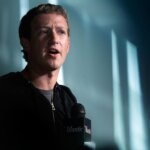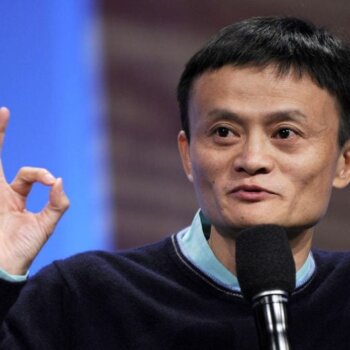In the history of bad ideas, becoming a pirate ranks near the top. Pirates rarely die old, and hardly go quietly. Blackbeard, perhaps the most famous Caribbean marauder of the 18th century, died of five gun wounds, 20 sword cuts, and a severed head, which ended up on the bowsprit of the boat that took him out.
And yet, Steve Jobs, the famously innovative founder of Apple, said, “It’s better to be a pirate than join the navy.”
Knowing the man—and the company he built—counter-intuitive statements like this come as no surprise. He’s known for zigging when the rest of the world zags. But clearly his legacy with Apple is in no danger of an untimely decapitation, so the “piracy” he advocated seems to be working extra well. For what pirates lack in job security (and, often, Vitamin C), they make up for in speed, autonomy, and the ability to keep competitors guessing. Which is what it turns out Apple is very good at, even if they guess right.
With this week’s announcements at Apple’s launch event for iPhone 6, Apple Watch, and Apple Pay, I’ve been thinking a lot about how Apple seems to capitalize so well on ignoring common wisdom. Here’s how the company does and has leveraged seemingly “bad ideas” to spur success:
Bad Idea #1: Showing up late to the game
When Apple failed to deliver a smart watch before Pebble and Samsung and others, critics howled at how the iGiant was losing its innovative touch. Apple showed little sign of progress in the smart watch arena, and analysts predicted that it might neverenter the wearables market.
But actually, Apple’s so-called bad idea was a good idea.
Business strategists have talked for decades about “first mover advantage,” or the idea that someone who is first to invent a product or come up with a new idea has an unfair advantage over those who try to copy.
However, it turns out that first-mover advantage is not an advantage at all! As I explored in Smartcuts, research from the University of Southern California shows that 47% of first-movers in business fail outright, and that only 11%. More than half the time, however, it’s a “fast-follower”—the second to bring a solution to market—not only beat pioneering companies but remain the market leader for years to come, even when later entrants try to disrupt them.
Write researchers Lieberman and Montgomery, “Pioneers often miss the best opportunities, which are obscured by technological and market uncertainties. In effect, early entrants may acquire the ‘wrong’ resources, which prove to be of limited value as the market evolves.”
While Samsung and Pebble slogged it out in the smart watch category (and experienced some disappointing market reception), Apple simply waited for the other two companies to learn a bunch of lessons for it. We saw the Galaxy Gear get savage reviews, fail to sell 1/20th as well as its record-smashing Galaxy phone counterparts, and gain poor acceptance from the fashion community. But once Samsung et. al. cleared the debris and Apple saw that the market timing was right, it introduced a smart watch that has surprised many naysayers and looks poised to gobble the market overnight.
This is, not coincidentally, the same thing that Apple did with Near Field Communication and mobile payment technology. I’ve complained every year about how “the new iPhone doesn’t have NFC” and “It’s the 21st century; why can’t I buy Vitamin Water with my phone yet?”
After Square Wallet tested the water, and Google Wallet got some consumer perception kinks out, Apple came out—late—and will now allow 800 million people to pay with mobile in one swoop.
Bad Idea #2: Not sticking to what’s working
The sheer number of cliches about not messing up a good thing you’ve got going is almost advance warning that Apple is going to go against them. While “don’t rock the boat” and “if it ain’t broke, don’t fix it” are near dogma to the average corporation (and person, really), Apple has made a name for itself—and a huge comeback in the last decade—by focusing on rocking the boat. In recent years, the tactic was radical simplicity. Jobs’ mantra, in fact, was “Focus and simplicity.” He famously said, “Simple can be harder than complex; you have to work hard to get your thinking clean to make it simple.”
The iPhone was great because it didn’t fuss with the standard marketspeak of megahertz and gigawhatzits, but simplified its value proposition to, “1,000 songs in your pocket.” The Magic Mouse became a sensation by removing buttons when everyone else was adding them. MacBook got lighter, less complex, and made of one piece instead of dozens. And Apple made its product line smaller.
This is what’s always worked for Apple. Yet, under Tim Cook, Apple has made a few steps in the opposite direction. Last year’s multichromed, metal iPhone 5s and multicolored, plastic 5c was a suspicious example of SKU creep—trying, perhaps, to please everyone instead of simplifying to one great product. This year’s multi-sized iPhone 6 and 6 Plus seems to be further example of either indecision or bending to competitors.
However, Apple’s “think different” applies not only to how the rest of the world thinks, but to how Apple thinks of itself, and this bad idea became one of the best ideas Apple has had—despite massive negative hype to the contrary. In Q4 last year, the plastic 5c outsold every Blackberry, Windows Phone, and Android flagship phone, according to reports. In fact, reports indicate that the 5c was a “better profit machine” than the 5, which came in one simple option and got rave reviews.
This, too, holds with Apple history. When Apple released the first iPhone, it broke Business Rule #1: don’t cannibalize your own products. The iPhone instantly made iPod obsolete. And yet, by not being afraid to break the rule, the company changed the telecommunications industry forever.
*
We’ll see how Apple Watch, Apple Pay, and the iPhone Sixes perform when they go on sale later this and next year. But it’s clear that the company has learned one key thing from Jobs’ pirates that its competitors haven’t: the element of surprise, and being willing to reverse course when the conditions dictate.
Jobs was famous for being violently opinionated. But he was just as famous for his ability to change his mind and become violently opinionated in a new direction. As he once said,
“If you want to live your life in a creative way, as an artist, you have to not look back too much. You have to be willing to take whatever you’ve done and whoever you were and throw them away.”
Shane Snow is Chief Creative Officer of Contently. He writes about media and technology for Wired, Fast Company, Ad Age, and more. Subscribe to more stories at http://eepurl.com/yJaEPor follow on Twitter at @shanesnow.





























